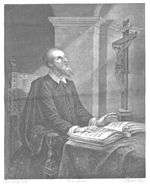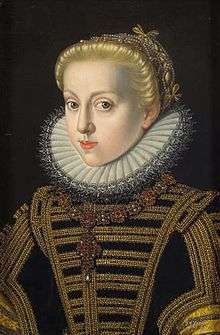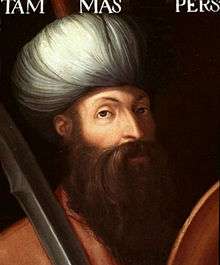1576
| Millennium: | 2nd millennium |
|---|---|
| Centuries: | 15th century · 16th century · 17th century |
| Decades: | 1540s · 1550s · 1560s · 1570s · 1580s · 1590s · 1600s |
| Years: | 1573 · 1574 · 1575 · 1576 · 1577 · 1578 · 1579 |
| 1576 by topic |
|---|
| Arts and science |
| Lists of leaders |
| Birth and death categories |
|
| Establishments and disestablishments categories |
|
| Works category |
|
| Gregorian calendar | 1576 MDLXXVI |
| Ab urbe condita | 2329 |
| Armenian calendar | 1025 ԹՎ ՌԻԵ |
| Assyrian calendar | 6326 |
| Bengali calendar | 983 |
| Berber calendar | 2526 |
| English Regnal year | 18 Eliz. 1 – 19 Eliz. 1 |
| Buddhist calendar | 2120 |
| Burmese calendar | 938 |
| Byzantine calendar | 7084–7085 |
| Chinese calendar | 乙亥年 (Wood Pig) 4272 or 4212 — to — 丙子年 (Fire Rat) 4273 or 4213 |
| Coptic calendar | 1292–1293 |
| Discordian calendar | 2742 |
| Ethiopian calendar | 1568–1569 |
| Hebrew calendar | 5336–5337 |
| Hindu calendars | |
| - Vikram Samvat | 1632–1633 |
| - Shaka Samvat | 1497–1498 |
| - Kali Yuga | 4676–4677 |
| Holocene calendar | 11576 |
| Igbo calendar | 576–577 |
| Iranian calendar | 954–955 |
| Islamic calendar | 983–984 |
| Japanese calendar | Tenshō 4 (天正4年) |
| Javanese calendar | 1495–1496 |
| Julian calendar | 1576 MDLXXVI |
| Korean calendar | 3909 |
| Minguo calendar | 336 before ROC 民前336年 |
| Nanakshahi calendar | 108 |
| Thai solar calendar | 2118–2119 |
| Wikimedia Commons has media related to 1576. |
Year 1576 (MDLXXVI) was a leap year starting on Sunday (link will display the full calendar) of the Julian calendar.
Events
January–June
- January 20 – Viceroy Martín Enríquez de Almanza founds the settlement of León, Guanajuato in New Spain (modern-day Mexico).
- January 25 – Portuguese explorer Paulo Dias de Novais founds the settlement of São Paulo da Assumpção de Loanda on the western coast of Africa, which becomes Luanda.
- May 5 – The Edict of Beaulieu or Peace of Monsieur (after "Monsieur", the Duke of Anjou, brother of the King, Henry III of France, who negotiated it) ends the Fifth War of Religion in France. Protestants are again granted freedom of worship.
July–December
- July 11 – English navigator Martin Frobisher sights Greenland.
- August 11 – English navigator Martin Frobisher, on his search for the Northwest Passage, enters the bay now named after him.
- October – the Siege of Takabaru occurred in Japan, when the forces of Shimazu Takahisa besieged and took the fortress of Takabaru, which belonged to the Itō clan.
- November 2 – Rudolf II becomes Holy Roman Emperor.
- November 4 – Eighty Years' War – Sack of Antwerp: In the Low Countries, mutinous Spanish soldiers sack Antwerp; after three days the city is nearly destroyed.
- November 8 – Eighty Years' War – Pacification of Ghent: The States General of the Netherlands meet and unite to oppose pillaging Spanish mutineers.
- December
- The States-General of Blois declares itself against the Edict of Beaulieu, beginning the Sixth War of Religion in France.
- James Burbage opens London's first permanent public playhouse, The Theatre.[1]
- December 14 – Hungarian Transylvanian Prince Stephen Báthory elected king of Poland.
Date unknown
- The 1576 Cocoliztli epidemic causes millions of deaths in the territory of New Spain in modern-day Mexico.
- An early example of autobiography is written in English by Thomas Whythorne.
- The Loci Communes of Peter Martyr Vermigli (d. 1562), edited by Robert le Maçon, are published in London.
- The following schools are founded in England:
- Dartford Grammar School, by William d'Aeth, Edward Gwyn and William Vaughn.
- Sutton Valence School, by William Lambe.
- Konstanty Wasyl Ostrogski founds Ostroh Academy, the first university-level school in Eastern Europe.
Births

Saint John Sarkander
- January 4 – Archduchess Catherine Renata of Austria, Austrian archduchess (d. 1599)
- January 5 – Anne Turner, English murderer (d. 1615)
- January 12 – Petrus Scriverius, Dutch writer and scholar on the history of Holland and Belgium (d. 1660)
- February 2 – Alix Le Clerc, French Canoness Regular and foundress (d. 1622)
- February 10 – Festus Hommius, Dutch theologian (d. 1642)
- February 29 – Antonio Neri, Italian chemist (d. 1614)
- March 31 – Countess Louise Juliana of Nassau, eldest daughter of William the Silent (d. 1644)
- May 17 – Joam Mattheus Adami, Italian Jesuit missionary (d. 1633)
- May 24 – Elizabeth Carey, Lady Berkeley, English courtier (d. 1635)
- May 27 – Caspar Schoppe, German controversialist and scholar (d. 1649)
- June 6 – Giovanni Diodati, Swiss-born Italian Calvinist theologian and translator (d. 1649)
- June 16 – Giovanni Battista Viola, Italian painter (d. 1622)
- July 3 – Duchess Anna of Prussia, daughter of Albert Frederick (d. 1625)
- September 1 – Scipione Borghese, Italian art collector (d. 1633)
- September 22 – Philipp of Bavaria, Roman Catholic Cardinal (d. 1598)
- October – Thomas Weelkes, English composer and organist (d. 1626)
- October 6 – Roger Manners, 5th Earl of Rutland, eldest surviving son of John Manners (d. 1612)
- October 7 – John Marston, English writer (d. 1634)
- October 12 – Thomas Dudley, Governor of Massachusetts Bay Colony (d. 1653)
- October 28 – Rudolph, Prince of Anhalt-Zerbst, Prince of Anhalt (1586–1603), then Prince of Anhalt-Zerbst (1603–1621) (d. 1621)
- October 30 – Enrico Caterino Davila, Italian historian and diplomat (d. 1631)
- November 6 – Charles Günther, Count of Schwarzburg-Rudolstadt (1605–1630) (d. 1630)
- November 17 – Roque Gonzales, Paraguayan missionary (d. 1628)
- November 18 – Philipp Ludwig II, Count of Hanau-Münzenberg (1580–1612) (d. 1612)
- November 27 – Shimazu Tadatsune, Japanese ruler of Satsuma (d. 1638)
- December 20 – Saint John Sarkander, Moravian priest (d. 1620)
- date unknown
- William Ames, English Protestant philosopher (d. 1633)
- John Carver, first governor of Plymouth Colony (d. 1621)
- Giulio Cesare la Galla, professor of philosophy at the Collegio Romano in Italy (d. 1624)
- Santino Solari, Swiss architect and sculptor (d. 1646)
- probable – Jesper Mattson Cruus af Edeby, Swedish soldier and politician (d. 1622)
Deaths
- January 19 – Hans Sachs, German Meistersinger (b. 1494)
- January 27 – Mizuno Nobumoto, Japanese shogun
- February 10 – Wilhelm/Guilielmus Xylander, German classical scholar (b. 1532)
- March 5 – Luis de Requesens y Zúñiga, Spanish governor of the Netherlands (b. 1528)
- May 14 – Tahmasp I, Shah of Persia (b. 1514)
- May 30 – Harada Naomasa, Japanese samurai
- July 2 – Josias Simmler, Swiss theologian and classicist (b. 1530)
- August 15 – Bálint Bakfark, Hungarian composer and lutenist (b. 1507)
- August 27 – Titian, Italian painter (b. c. 1489)
- September 21 – Gerolamo Cardano, Italian mathematician, physician, astrologer and gambler (b. 1502)
- September 22 – Walter Devereux, 1st Earl of Essex (b. 1541)
- October 12 – Maximilian II, Holy Roman Emperor (b. 1527)
- probable
- Anthony More, Dutch portrait painter (b. 1512)
- Nicola Vicentino, Italian music theorist and composer (b. 1511)
References
This article is issued from Wikipedia - version of the 11/22/2016. The text is available under the Creative Commons Attribution/Share Alike but additional terms may apply for the media files.


